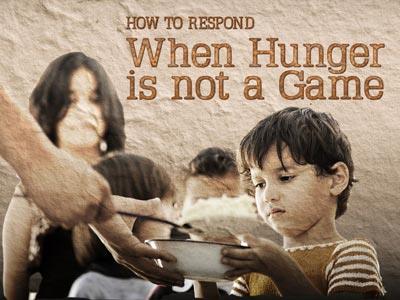-
Happiness Through Hunger Series
Contributed by Glenn Pease on Mar 11, 2021 (message contributor)
Summary: Men become desperate when they hunger and thirst, and all the energy of their being is concentrated on one goal-to satisfy their need. This sounds like misery, and it is, but it is in the spiritual realm another example of the paradoxical misery that leads to happiness.
A woman leaving church said to the pastor, "Thank you for that
sermon, it was so helpful." The pastor said, "I hope it was not as
helpful as the last one." "Why what do you mean," she asked.
"Well," he said, "that last sermon lasted you three months." On the
other hand, there's a pastor who told a woman how glad he was to see
her so faithful in attendance each Sunday. "Yes," she said, "it is such
a rest after a hard week to come and sit down and not think about
anything."
These two cases are extremes, but nevertheless they are typical
attitudes which are happiness killers for many professing Christians.
A poor appetite means trouble in the body, and a lack of craving for
spiritual food is a sign of an unhealthy soul. Jesus says in order to be
happy we must hunger and thirst after righteousness. It is not enough
to nibble at it at your convenience. To hunger and thirst is a painful
experience which motivates a person very strongly. A craving for
food and water makes a person desperate and leads to revolutionary
action. Nothing matters to the person who is starving or dying of
thirst but the satisfying of that burning desire.
David entered the house of God and ate the bread of the Presence
which was unlawful, but he did it because he and his men were so
hungry. The Bible tells of two mothers in Samaria who, when the city
was besieged by Benhadad, made a pact to eat their own babies. This
has happened many times in history, and even here in America. The
Donner party on its way to California in the frontier days got
stranded in the mountain snows. Even though they represented the
best of American life, hunger drove them to eat the flesh of those that
died.
Thirst also drives men to desperate measures. People who heard
Jesus knew more about real thirst than we do. The hot sun in the
desert made water more precious to them than we can realize. Rider
Haggard in King Solomon's Mines tells of three men and their guide
who are running out of water. The Zulu guide says, "If we cannot find
water, we shall all be dead before the moon rises tomorrow." One of
the men reflecting back on the torture of thirst and the hallucination it
created said, "If the Cardinal had been there, with his bell, book, and
candle, I would have whipped in and drunk his water up, yea, even if I
knew that the whole concentrated curse of the Catholic Church should
fall on me for so doing..."
Men become desperate when they hunger and thirst, and all the
energy of their being is concentrated on one goal-to satisfy their need.
This sounds like misery, and it is, but it is in the spiritual realm
another example of the paradoxical misery that leads to happiness.
Without hunger men will not crave what they need. If the Prodigal
Son had not ended up eating husks being fed to pigs, he may never had
returned to his father. The misery and hunger motivated him to go
home, and to the spiritual banquet of forgiveness, as well as the
physical banquet of food.
Happiness through hunger is the next logical step in the beatitudes
of Christ. The first three have been downward. We must be emptied
of self; dependent upon God, and submissive in humility before we can
be filled with the righteousness of God. Those who are poor in spirit,
who mourn, and are meek are sufficiently detached from self, and now
ready for this new direction in which we are to climb.
Empty of self-righteousness and ready to be filled with the
righteousness of Christ. There are three attitudes that will
characterize us if we have arrived at this point, and truly hunger and
thirst after righteousness. First there will be:
I. THE ATTITUDE OF ADMIRATION.
Admiration is the appetite of the soul. Sir John Suckling said, "Tis
not the meat, but tis the appetite makes eating a delight." To be
happy in hungering and thirsting after righteousness we must have an
appetite for righteousness. If we do not admire the righteousness of
Christ, and men of righteousness in history are not our heroes, we will
have a hard time being a happy Christian. A happy Christian who
does not admire righteousness is as contradictory as a gourmet who is
repulsed by food, or a clown who does not like laughter.
If the Christian still finds sin very appealing, he will not hunger or
thirst after righteousness. The man who does not mourn over sin, and
long for the sanctified life that Jesus can give can never find the
happiness of this beatitude. He's hung up back on the negative

 Sermon Central
Sermon Central



